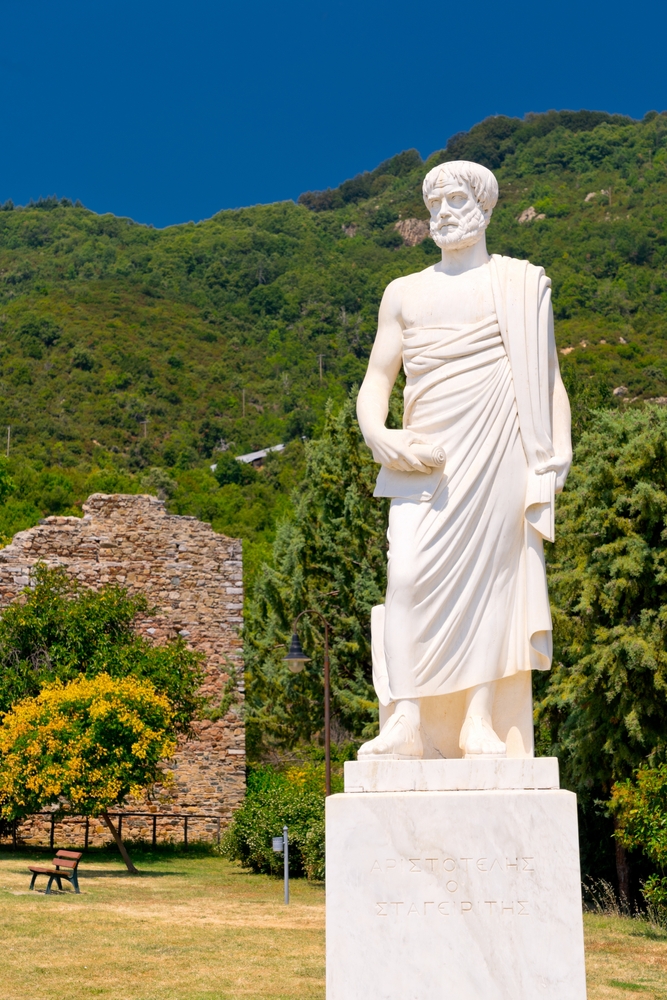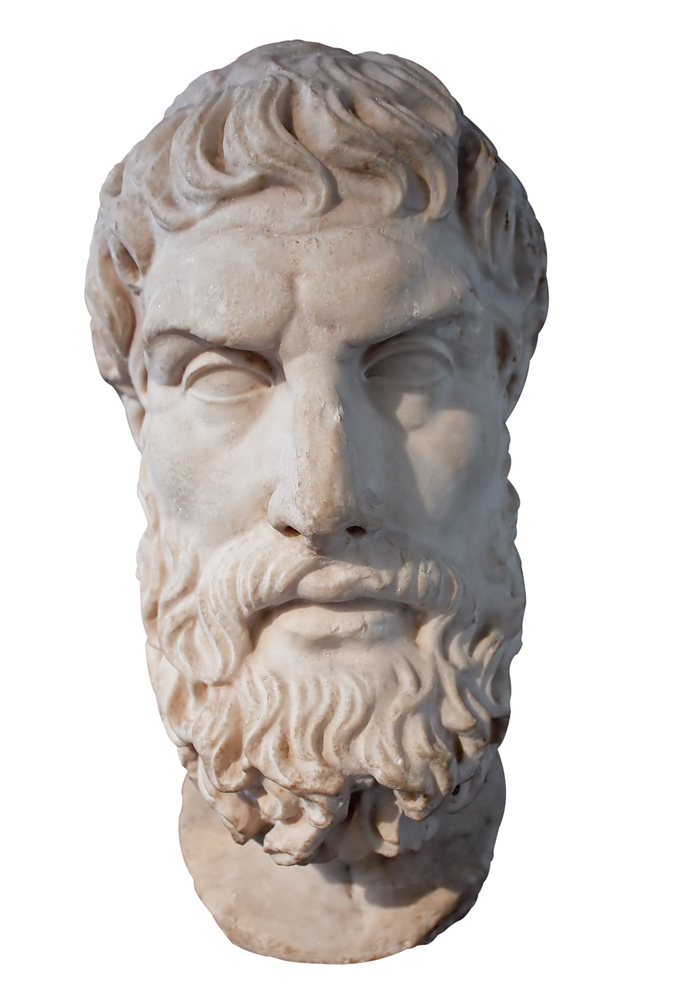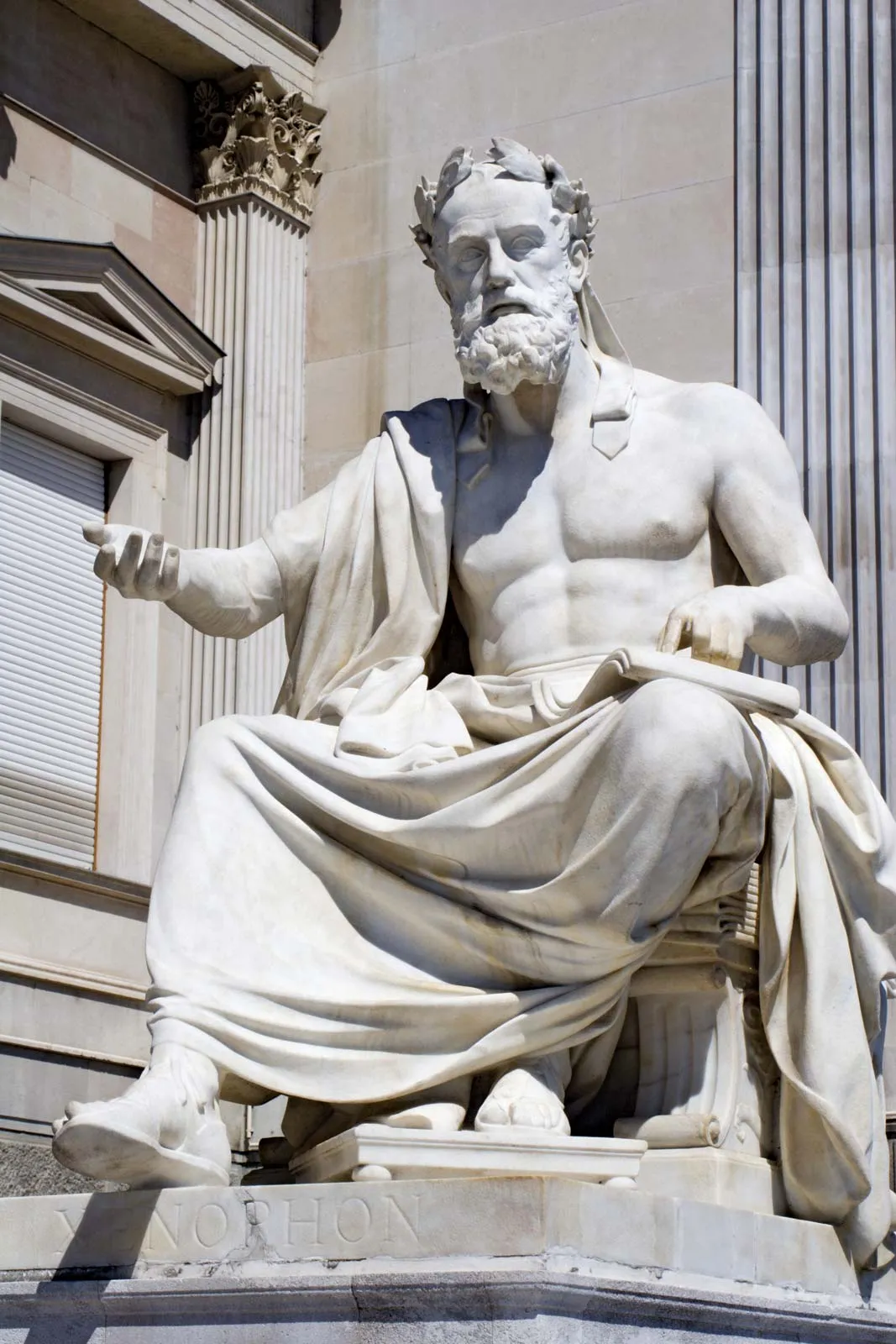 Aristotle (384-322 BCE) was a Greek philosopher and scientist who is considered one of the most important figures in Western thought. He was a student of Plato and tutored Alexander the Great. Aristotle is known for his wide-ranging contributions to philosophy, including works on ethics, politics, metaphysics, logic, biology, and physics.
Aristotle (384-322 BCE) was a Greek philosopher and scientist who is considered one of the most important figures in Western thought. He was a student of Plato and tutored Alexander the Great. Aristotle is known for his wide-ranging contributions to philosophy, including works on ethics, politics, metaphysics, logic, biology, and physics.
Aristotle was born in Stagira, Greece, and was the son of a physician. He studied at Plato's Academy in Athens for 20 years, but later broke up with his teacher and founded his own school, the Lyceum. The Lyceum was a center of learning that attracted scholars and thinkers from all over the world.
Aristotle's contributions to philosophy and science were vast and diverse. He developed a system of logic that became the basis for Western philosophy and science, and his ideas about ethics, politics, and metaphysics have had a profound and lasting impact on Western thought. In addition, Aristotle made important contributions to biology, including his studies of animals and his classification system that influenced the work of naturalists for centuries.
Read more: Aristotle
 Epicurus was an ancient Greek philosopher who lived from 341 BCE to 270 BCE. He is known for his philosophical school of thought called Epicureanism, which emphasized the importance of living a happy and fulfilled life through the pursuit of pleasure and the avoidance of pain.
Epicurus was an ancient Greek philosopher who lived from 341 BCE to 270 BCE. He is known for his philosophical school of thought called Epicureanism, which emphasized the importance of living a happy and fulfilled life through the pursuit of pleasure and the avoidance of pain.

 Xenophon was a Greek historian, philosopher, and soldier who lived in ancient Greece from around 430-354 BCE. He was a student of Socrates and is known for his historical works and his writings on philosophy and politics.
Xenophon was a Greek historian, philosopher, and soldier who lived in ancient Greece from around 430-354 BCE. He was a student of Socrates and is known for his historical works and his writings on philosophy and politics. Aristotle (384-322 BCE) was a Greek philosopher and scientist who is considered one of the most important figures in Western thought. He was a student of Plato and tutored Alexander the Great. Aristotle is known for his wide-ranging contributions to philosophy, including works on ethics, politics, metaphysics, logic, biology, and physics.
Aristotle (384-322 BCE) was a Greek philosopher and scientist who is considered one of the most important figures in Western thought. He was a student of Plato and tutored Alexander the Great. Aristotle is known for his wide-ranging contributions to philosophy, including works on ethics, politics, metaphysics, logic, biology, and physics. Plato was a Greek philosopher who lived in ancient Greece from around 427-347 BCE. He was a student of Socrates and a teacher of Aristotle. He is considered one of the most important figures in the development of Western philosophy, and his work has had a profound influence on the development of Western thought.
Plato was a Greek philosopher who lived in ancient Greece from around 427-347 BCE. He was a student of Socrates and a teacher of Aristotle. He is considered one of the most important figures in the development of Western philosophy, and his work has had a profound influence on the development of Western thought.